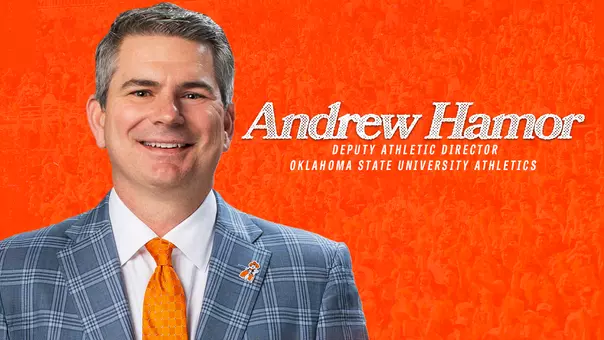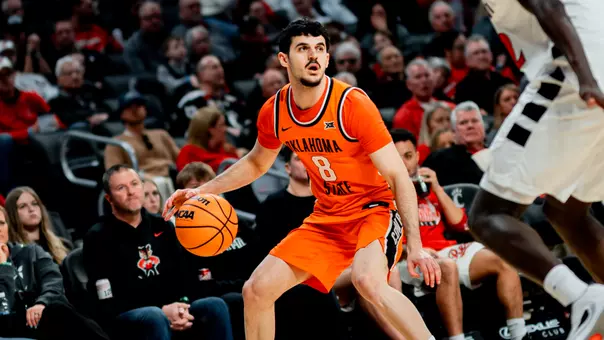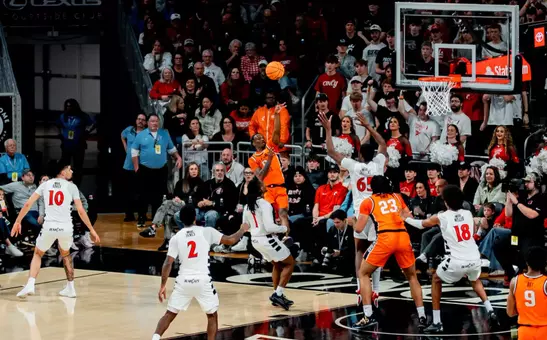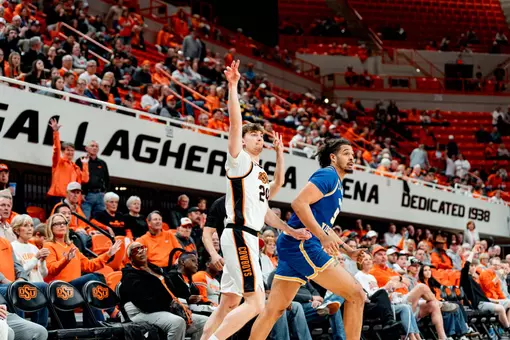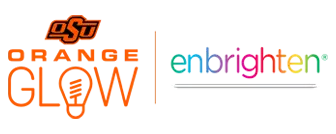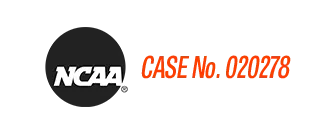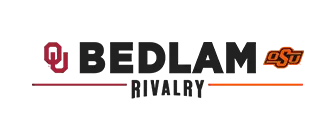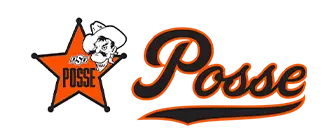Oklahoma State University Athletics
Oklahoma State's Weiberg, Boynton Discuss NCAA Penalties
November 03, 2021 | General, Cowboy Basketball
STILLWATER – Oklahoma State athletic director Chad Weiberg and men's basketball head coach Mike Boynton met with reporters to discuss the NCAA ruling on OSU basketball penalties. The transcript:
Oklahoma State Athletic Director Chad Weiberg
Opening Statement:
"I am profoundly disappointed, dismayed and disgusted by the NCAA's decision after a four-and-a-half-year process. A process that took over twice as long as the FBI's original investigation. To use this flawed and inconsistent process to take away the opportunity for postseason and the NCAA tournament from student-athletes who had nothing whatsoever to do with this case proves to me that the national office has chosen to weaponize the NCAA tournament against the very membership that has turned it into the lifeblood of the NCAA. I have a deep and fundamental disagreement with the NCAA using the tournament in this way. It is the bad actors, those that knowingly circumvent and violate the rules, that should be punished. It is unnecessary to punish these student-athletes this way and is further proof the NCAA's system is disconnected and broken. Deep and drastic changes are needed to create a better, more consistent and fairer model. We began this process with the NCAA before (Mike) Boynton had the opportunity to coach his first game as a head coach at Oklahoma State and this week we enter his fifth season. He has recruited and coached every single game with this investigation, infractions and appeals process taking place. It has not stopped, or even slowed him and this Cowboy basketball program and this decision today will not either. I want every OSU fan to know that we take playing by the rules very seriously and will continue to do so. Upon learning of the FBI's evidence, we never disputed that we employed a person that was operating outside our system and outside the rules. We took immediate action to remove him and began cooperating with the NCAA. Because of that, I am very concerned that today's decision will send a very chilling message to the NCAA membership that cooperating in an investigation with our own governing body is not in your best interest. What message does it send to the membership that you can receive a postseason ban regardless of the fact the findings found no lack of institutional control, no head coach responsibility, no failure to monitor, no academic fraud or misconduct, no participation of ineligible players as a result of violations and no recruiting violations? A decision we believe has never happened before in the history of the NCAA. What is the membership to make of a postseason ban for student-athletes five seasons after the fact because of a rogue employee who was acting solely on behalf of his personal self-interests and went to great lengths to hide it from his employer and resulted in zero advantages in recruiting or competing for the institution? It seems to me if it were applied consistently, the message the NCAA is sending to the membership is a new standard. Of course, it remains to be seen if this new standard will be applied consistently. Only time will tell, and we will be watching. In closing, I know I am joined by our alumni and fans in saying I am as proud today of Cowboy basketball, Coach Boynton and these student-athletes as I have ever been. I know the entire OSU family joins me in thanking Coach Boynton for his leadership and the way he and his program represent our institution. I know we will rally around and get behind Coach Boynton and this team. We start the season on Friday and look forward to having everyone back in Gallagher-Iba Arena this year. The future of this program remains bright. Great things are ahead for Cowboy basketball."
Oklahoma State head basketball coach Mike Boynton
Opening Statement:
"Thank you all for being here. I am disappointed, disgusted, appalled and frustrated, but somewhere in Indianapolis is a group of people celebrating. Stan Wilcox gave a directive. He sent Jon Duncan and the team to save face. They won. Our players don't deserve and shouldn't have to deal with this. Russell Register and Sherika Montgomery came here and interviewed everybody they could, and they uncovered nothing. The FBI did a job and so did we. There was a single NCAA violation. One player received $300. One player - not a recruit, not a future recruit, not a family member, one current player received $300. In and of itself because it was self-reported by us it is a secondary violation to which the punishment is you pay the money back and serve your suspension, which the kid did, and you move on. Now we're here, and Stan Wilcox and Jon Duncan and Russell Register and Sherika Montgomery and the Appeals Committee to include Ellen Farris, Anthony Jenkins, Jonathan Alger, Allison Rich and David Shipley and the Committee on Infractions - Alberto Gonzalez, Joel Maturi, Gary Miller, Vince Nicastro, Larry Parkinson, Thomas Sullivan and (Sankar Suryanarayan) - they slept well last night. They felt good about the work they did, while I explained to 17 kids that their dream of playing in the NCAA tournament this year couldn't be realized. That's shameful. There's no wonder that nobody trusts them because they get to hide behind the letters of COI and IAF, and they don't have to come do this and answer questions and talk to kids and talk to parents. The message is clear because we had one $300 violation with no failure to monitor, no lack of institutional control, no recruiting violations, no head coach responsibility, no players playing ineligible, so if you got some of those things going on, don't do what we did. What we did was we asked them that we work with them through this process. On Jan. 20, 2020, I flew to Atlanta to do the first round of this process with the NCAA. The next day we played OU here, but it was important that I be there. I went to Atlanta for no reason, to cooperate with them, to cooperate with Jon Duncan and Sherika Montgomery and Russell Register. Then this year on Feb. 7, while in Lawrence, Kansas, before a game on the day we played, we had an appeal hearing. We cooperated, we showed up, we answered their questions, and we provided all the information they asked for. So, if you're one of those other schools, be careful what they ask you for. Stan Wilcox should be ashamed that he gave this mandate because this was about trying to save face for something that was uncovered and not because of their doing. Now our cooperation has made it worse for a guy like Isaac Likekele, who was nowhere near Stillwater when this was happening. I had a young man in my meeting last night raise his hand and ask me 'Coach, what are we talking about?' That's how long this has been. They're not answering any questions today, that's all you need to know about them."
Questions and Answers
Is there another step to appeal this action?
Weiberg: Not that I'm aware of. Anything like that that we are aware of that has been done before has been wasted effort. We will explore all opportunities, all avenues, but there's nothing that we are aware of that's part of the process. But it's broken, and it is flawed.
Reaction of the players
Boynton: Sadness. I never imagined that we'd get the information that we got. And the more I think about it, the more frustrating it is. That (NCAA Infraction Appeals Committee) meeting was on February 7th of this year – that's nine months ago. If this was the decision, have some courage and stand up and say 'We stand by what we said.' So, no, there's nothing really surprising that the players are frustrated. And in 72 hours from last night, but in 48 hours from now, we're going to try and play a basketball game. I'm going to try and get these kids to buy into each other. And I'm going to need our fans' help.
In the summary, there are references to the institution being responsible for the activities of the coach yet there was no finding for lack of institutional control. What type of explanation were you given for that?
Weiberg: We haven't (received one). We've asked for clarification. We've asked 'What is an institution supposed to do different?' Our understanding is that was part of the infractions process – being able to know what you did wrong, being able to fix it and to be able to send a message to the rest of the membership that this is what you've got to be aware of, try to avoid, do different, whatever. And I don't know what the message is because as far as I can tell, the only thing that we did was hire him. We did not know that this was going on. It started at another institution, continued once he got here, assume it would have kept going at another institution had he left to go there. He was very good at hiding it. We had all our systems in place to monitor everything that we can. The committee said there was no lack of institutional control, no failure to monitor. So I don't know what we could have done different, were supposed to do different. That seems to me to be the new standard that we're talking about.
A representative in Tennessee is introducing legislation at the federal level to address the NCAA enforcement process. Have you or Dr. (Kayse) Shrum been in contact with anyone in your Congressional group from Oklahoma about this?
Weiberg: Not about this. This is all so new. I'm sure there would be people that would be willing to help and that would agree with maybe what's taking place in Tennessee. I think everyone believes the NCAA process is broken and flawed. That's why we're having a constitutional convention, and there is going to be this type of discussion in it. I don't think there's very many people out there that would disagree with the fact that this is broken and this is flawed. While there is nothing in the process that is allowed for us to change this, it can be changed. There's all kinds of instances where the national office changes what has been done. We've been through two years of that very kind of thing happening, where if the process does not come to the right result, there has to be a mechanism for it to be corrected and changed. I believe that it's in there somewhere. I don't know that we'll be able to get to it, I don't know that we'll be able to get to it in time for this team and this season, but that's the kind of thing that we've got to address in this process.
It seems to me that (OSU) was asking the NCAA to look at the punishment. But it said like they thought the process was correct. Do you feel like they looked at the right thing?
Weiberg: I feel like the appeals committee had problems with what the infractions panel did. And instead of getting any kind of benefit of the doubt from what came out of the infractions panel for us, all the benefit of the doubt went to them. That, like Coach Boynton says, is easy for them to sit in a room and do when they don't have to look the student-athletes in the face. That is who this impacts and who this affects. Oklahoma State has been here for 130 years, and we've played basketball most of that time. We'll be here for beyond the next 130 years, and we'll be playing basketball for that time. These student-athletes have four chances to do this, and they sat in that room and just took one of them away from them. And that is wrong.
You have known the news a little longer than the public. I feel like outrage is a very common emotion right now. Is that still the feeling? What have you done as you've started to process this and where are you emotionally?
Boynton: Trying in a couple hours to have a good practice somehow with all the questions that are going through their heads, that are being asked of them from other people. That's really where my focus is, and it will probably be that way for quite a while. I won't really deal with any other emotion other than making sure that they're good and that they feel comfortable that we have their back.
Weiberg: I obviously went through all those emotions yesterday when we got the news, and I wondered if I would wake up feeling any different this morning. I think I felt worse. I was more upset, more confused, more sad, all those emotions. It was just more because for me it's the inconsistencies of the process, the way that it was set up. It's just very inconsistent. And when it results in something that impacts the student-athletes like this has, that is a complete disconnect from what we're supposed to be here doing.
What do you tell the players with 30 games in front of them?
Boynton: For me, it's that they still have each other. There are some things that this team had talked about being able to achieve that realistically aren't possible at this point. Playing in the tournament, getting further that we did last year, possibly Final Four, national championship – these guys have talked about those things. So we've kind of got to reset a little bit that thought process. But there are other things that we still can accomplish. Isaac Likekele can do some special things as a senior and leave here with a legacy of being a guy who helped re-energize the program during this time. And there are other guys who will have more chances coming back. But we'll see – some of it's too far down the road to really consider. Right now my focus is just trying to get them prepared to go out and have a good practice today.
Weiberg: We talked about just that there a lot of things that happen during the course of your life and the course of your career that are outside your control. You can't control this, you didn't have anything to do with it. So you've just got to stay focused on the things that you can control, control how you respond to them. That's exactly what Coach Boynton and the team will focus on doing.
On past history factoring into the decision
Weiberg: That is all tied up in Kevin Fite and our staff and they can probably give you a lot more detail about, but in the mitigating and aggravating factors in how the process weighs out there are just inconsistencies in that. If you look at what some schools are awarded and mitigating factors versus aggravating factors and all that there is no consistency in the way that is done. We all are aware of the history of this. Again, so we are going to use something that happened 25, 30 or more years ago here at OSU to punish this basketball team, these 17 student-athletes. That is a very flawed process.
On the scholarship reduction
Boynton: I really haven't thought that much about that part of it. Certainly, know it is out there. Like I said, I will deal with that as it comes. Obviously, recruiting is a big deal to us and what we do. It is certainly something we will have to consider as we move forward.
On having any regrets with how OSU cooperated with the NCAA during the process
Weiberg: I hope that we never have to go through anything like this again, obviously. If we do, we will do things differently.
On if there was a feeling time served would be sufficient punishment
Weiberg: I was hopeful. I was optimistic that all of that would be taken into account. Of course, we were wondering why it was taking so long. You hoped that maybe that was maybe a positive thing, that it was taking long, but we didn't know. We got no credit for any of that. In a lot of ways, we have been punished this entire time. Yet, if you look at the ruling and Kevin, correct me if I am wrong, it references that our probation period started yesterday. So, by the time we get through this, we will in effect be under some sort of punishment for almost nine years.
Boynton: In my mind, I don't think it was justified regardless of the ending. The right thing to do was look at the facts in the case, not what Stan Wilcox said two summers ago, which was 'I would not want to be the first institution up.' Sending a mandate and we were the first institution up and that there will be consequences while the investigation is happening. That signifies that in their minds the end result was already kind of in the bag. With no thought of let's go through process and let the facts lead us to the decision. That clearly did not happen in this case.
On whether OSU was treated fairly in comparison to other programs
Boynton: I follow every single one of these deals and I read about the results in all of them. There have been some results that have been very different from ours with very similar circumstances involved and that makes it even more frustrating because consistency can be able to justify it. If there was some consistency you could say these cases have very similar circumstances and therefore the punishment you could justify being similar. The cases have similar circumstances and the consequences are drastically different and that is utterly ridiculous.
On a movement for reform
Weiberg: There has been a lot of discussion, without going into a lot of details, there is a constitutional committee that has been formed to look at the process of what needs to be changed. The infractions enforcement, all of that, is certainly one of them. We have all known this has been a frustrating, inconsistent and flawed process for a long time. How we got there you can argue about or whatever. There is a lot of agreement that it is broken and needs to be fixed now. What that looks like and how that happens, I don't know yet. I look forward to being part of that process to the degree that we can and hope for serious reform because it is clear that it is needed. The student-athletes have to be the ones at the center of the decisions that we make. If we want to get serious about playing on a level playing field. Let's monitor and punish the ones that knowingly break the rules we have in place and not student-athletes who were seventh graders when it happened.
On having a sense of relief with the ruling being delivered
Boynton: It is not over. The right decision could have brought some closure here. We are closer to the end. There is a probationary period out there still. There is a scholarship reduction out there still. We are looking at 2-3 more years of dealing with the repercussions of this decision. We don't have to worry about what the outcome is, it is over. There is still some residual effect. There is a kid who is not going to get a scholarship to college because we can't offer one over the next whatever years it is with that scholarship reduction. That sounds like a really just way to punish somebody who did something wrong five years ago.
On the team's reaction
Boynton: I was on the road yesterday and I got an email as I landed in Dallas. I immediately knew when I got back I needed to get these kids informed and caught up to speed before today happened. The worst thing that could happen is they read about this today. That would have made me just as bad as the people I named. I haven't seen them since then. I have reached out to several of them. I will see them in a couple of hours for practice. We will start to try to mend what is hurt. We had some guys crying for sure. Isaac Likekele was the first up here. This stuff happened long before he got here. Even long before Oklahoma State was involved in this. It is really hard to make it make sense at all.
On potentially playing in the Big 12 Championship
Weiberg: I talked to Bob (Bowlsby) yesterday and we had that conversation and I don't want to give any false hope. I don't know where that process is going to go. The last thing we need is to have more hope and disappointment. I appreciate the commissioner being willing to explore that and we will see where it goes. I think there is some reconciliation that would need to happen with the NCAA over that. This is new territory for Commissioner Bowlsby just like it is for us and we will certainly work with him through that process and see where it goes.
Oklahoma State Athletic Director Chad Weiberg
Opening Statement:
"I am profoundly disappointed, dismayed and disgusted by the NCAA's decision after a four-and-a-half-year process. A process that took over twice as long as the FBI's original investigation. To use this flawed and inconsistent process to take away the opportunity for postseason and the NCAA tournament from student-athletes who had nothing whatsoever to do with this case proves to me that the national office has chosen to weaponize the NCAA tournament against the very membership that has turned it into the lifeblood of the NCAA. I have a deep and fundamental disagreement with the NCAA using the tournament in this way. It is the bad actors, those that knowingly circumvent and violate the rules, that should be punished. It is unnecessary to punish these student-athletes this way and is further proof the NCAA's system is disconnected and broken. Deep and drastic changes are needed to create a better, more consistent and fairer model. We began this process with the NCAA before (Mike) Boynton had the opportunity to coach his first game as a head coach at Oklahoma State and this week we enter his fifth season. He has recruited and coached every single game with this investigation, infractions and appeals process taking place. It has not stopped, or even slowed him and this Cowboy basketball program and this decision today will not either. I want every OSU fan to know that we take playing by the rules very seriously and will continue to do so. Upon learning of the FBI's evidence, we never disputed that we employed a person that was operating outside our system and outside the rules. We took immediate action to remove him and began cooperating with the NCAA. Because of that, I am very concerned that today's decision will send a very chilling message to the NCAA membership that cooperating in an investigation with our own governing body is not in your best interest. What message does it send to the membership that you can receive a postseason ban regardless of the fact the findings found no lack of institutional control, no head coach responsibility, no failure to monitor, no academic fraud or misconduct, no participation of ineligible players as a result of violations and no recruiting violations? A decision we believe has never happened before in the history of the NCAA. What is the membership to make of a postseason ban for student-athletes five seasons after the fact because of a rogue employee who was acting solely on behalf of his personal self-interests and went to great lengths to hide it from his employer and resulted in zero advantages in recruiting or competing for the institution? It seems to me if it were applied consistently, the message the NCAA is sending to the membership is a new standard. Of course, it remains to be seen if this new standard will be applied consistently. Only time will tell, and we will be watching. In closing, I know I am joined by our alumni and fans in saying I am as proud today of Cowboy basketball, Coach Boynton and these student-athletes as I have ever been. I know the entire OSU family joins me in thanking Coach Boynton for his leadership and the way he and his program represent our institution. I know we will rally around and get behind Coach Boynton and this team. We start the season on Friday and look forward to having everyone back in Gallagher-Iba Arena this year. The future of this program remains bright. Great things are ahead for Cowboy basketball."
Oklahoma State head basketball coach Mike Boynton
Opening Statement:
"Thank you all for being here. I am disappointed, disgusted, appalled and frustrated, but somewhere in Indianapolis is a group of people celebrating. Stan Wilcox gave a directive. He sent Jon Duncan and the team to save face. They won. Our players don't deserve and shouldn't have to deal with this. Russell Register and Sherika Montgomery came here and interviewed everybody they could, and they uncovered nothing. The FBI did a job and so did we. There was a single NCAA violation. One player received $300. One player - not a recruit, not a future recruit, not a family member, one current player received $300. In and of itself because it was self-reported by us it is a secondary violation to which the punishment is you pay the money back and serve your suspension, which the kid did, and you move on. Now we're here, and Stan Wilcox and Jon Duncan and Russell Register and Sherika Montgomery and the Appeals Committee to include Ellen Farris, Anthony Jenkins, Jonathan Alger, Allison Rich and David Shipley and the Committee on Infractions - Alberto Gonzalez, Joel Maturi, Gary Miller, Vince Nicastro, Larry Parkinson, Thomas Sullivan and (Sankar Suryanarayan) - they slept well last night. They felt good about the work they did, while I explained to 17 kids that their dream of playing in the NCAA tournament this year couldn't be realized. That's shameful. There's no wonder that nobody trusts them because they get to hide behind the letters of COI and IAF, and they don't have to come do this and answer questions and talk to kids and talk to parents. The message is clear because we had one $300 violation with no failure to monitor, no lack of institutional control, no recruiting violations, no head coach responsibility, no players playing ineligible, so if you got some of those things going on, don't do what we did. What we did was we asked them that we work with them through this process. On Jan. 20, 2020, I flew to Atlanta to do the first round of this process with the NCAA. The next day we played OU here, but it was important that I be there. I went to Atlanta for no reason, to cooperate with them, to cooperate with Jon Duncan and Sherika Montgomery and Russell Register. Then this year on Feb. 7, while in Lawrence, Kansas, before a game on the day we played, we had an appeal hearing. We cooperated, we showed up, we answered their questions, and we provided all the information they asked for. So, if you're one of those other schools, be careful what they ask you for. Stan Wilcox should be ashamed that he gave this mandate because this was about trying to save face for something that was uncovered and not because of their doing. Now our cooperation has made it worse for a guy like Isaac Likekele, who was nowhere near Stillwater when this was happening. I had a young man in my meeting last night raise his hand and ask me 'Coach, what are we talking about?' That's how long this has been. They're not answering any questions today, that's all you need to know about them."
Questions and Answers
Is there another step to appeal this action?
Weiberg: Not that I'm aware of. Anything like that that we are aware of that has been done before has been wasted effort. We will explore all opportunities, all avenues, but there's nothing that we are aware of that's part of the process. But it's broken, and it is flawed.
Reaction of the players
Boynton: Sadness. I never imagined that we'd get the information that we got. And the more I think about it, the more frustrating it is. That (NCAA Infraction Appeals Committee) meeting was on February 7th of this year – that's nine months ago. If this was the decision, have some courage and stand up and say 'We stand by what we said.' So, no, there's nothing really surprising that the players are frustrated. And in 72 hours from last night, but in 48 hours from now, we're going to try and play a basketball game. I'm going to try and get these kids to buy into each other. And I'm going to need our fans' help.
In the summary, there are references to the institution being responsible for the activities of the coach yet there was no finding for lack of institutional control. What type of explanation were you given for that?
Weiberg: We haven't (received one). We've asked for clarification. We've asked 'What is an institution supposed to do different?' Our understanding is that was part of the infractions process – being able to know what you did wrong, being able to fix it and to be able to send a message to the rest of the membership that this is what you've got to be aware of, try to avoid, do different, whatever. And I don't know what the message is because as far as I can tell, the only thing that we did was hire him. We did not know that this was going on. It started at another institution, continued once he got here, assume it would have kept going at another institution had he left to go there. He was very good at hiding it. We had all our systems in place to monitor everything that we can. The committee said there was no lack of institutional control, no failure to monitor. So I don't know what we could have done different, were supposed to do different. That seems to me to be the new standard that we're talking about.
A representative in Tennessee is introducing legislation at the federal level to address the NCAA enforcement process. Have you or Dr. (Kayse) Shrum been in contact with anyone in your Congressional group from Oklahoma about this?
Weiberg: Not about this. This is all so new. I'm sure there would be people that would be willing to help and that would agree with maybe what's taking place in Tennessee. I think everyone believes the NCAA process is broken and flawed. That's why we're having a constitutional convention, and there is going to be this type of discussion in it. I don't think there's very many people out there that would disagree with the fact that this is broken and this is flawed. While there is nothing in the process that is allowed for us to change this, it can be changed. There's all kinds of instances where the national office changes what has been done. We've been through two years of that very kind of thing happening, where if the process does not come to the right result, there has to be a mechanism for it to be corrected and changed. I believe that it's in there somewhere. I don't know that we'll be able to get to it, I don't know that we'll be able to get to it in time for this team and this season, but that's the kind of thing that we've got to address in this process.
It seems to me that (OSU) was asking the NCAA to look at the punishment. But it said like they thought the process was correct. Do you feel like they looked at the right thing?
Weiberg: I feel like the appeals committee had problems with what the infractions panel did. And instead of getting any kind of benefit of the doubt from what came out of the infractions panel for us, all the benefit of the doubt went to them. That, like Coach Boynton says, is easy for them to sit in a room and do when they don't have to look the student-athletes in the face. That is who this impacts and who this affects. Oklahoma State has been here for 130 years, and we've played basketball most of that time. We'll be here for beyond the next 130 years, and we'll be playing basketball for that time. These student-athletes have four chances to do this, and they sat in that room and just took one of them away from them. And that is wrong.
You have known the news a little longer than the public. I feel like outrage is a very common emotion right now. Is that still the feeling? What have you done as you've started to process this and where are you emotionally?
Boynton: Trying in a couple hours to have a good practice somehow with all the questions that are going through their heads, that are being asked of them from other people. That's really where my focus is, and it will probably be that way for quite a while. I won't really deal with any other emotion other than making sure that they're good and that they feel comfortable that we have their back.
Weiberg: I obviously went through all those emotions yesterday when we got the news, and I wondered if I would wake up feeling any different this morning. I think I felt worse. I was more upset, more confused, more sad, all those emotions. It was just more because for me it's the inconsistencies of the process, the way that it was set up. It's just very inconsistent. And when it results in something that impacts the student-athletes like this has, that is a complete disconnect from what we're supposed to be here doing.
What do you tell the players with 30 games in front of them?
Boynton: For me, it's that they still have each other. There are some things that this team had talked about being able to achieve that realistically aren't possible at this point. Playing in the tournament, getting further that we did last year, possibly Final Four, national championship – these guys have talked about those things. So we've kind of got to reset a little bit that thought process. But there are other things that we still can accomplish. Isaac Likekele can do some special things as a senior and leave here with a legacy of being a guy who helped re-energize the program during this time. And there are other guys who will have more chances coming back. But we'll see – some of it's too far down the road to really consider. Right now my focus is just trying to get them prepared to go out and have a good practice today.
Weiberg: We talked about just that there a lot of things that happen during the course of your life and the course of your career that are outside your control. You can't control this, you didn't have anything to do with it. So you've just got to stay focused on the things that you can control, control how you respond to them. That's exactly what Coach Boynton and the team will focus on doing.
On past history factoring into the decision
Weiberg: That is all tied up in Kevin Fite and our staff and they can probably give you a lot more detail about, but in the mitigating and aggravating factors in how the process weighs out there are just inconsistencies in that. If you look at what some schools are awarded and mitigating factors versus aggravating factors and all that there is no consistency in the way that is done. We all are aware of the history of this. Again, so we are going to use something that happened 25, 30 or more years ago here at OSU to punish this basketball team, these 17 student-athletes. That is a very flawed process.
On the scholarship reduction
Boynton: I really haven't thought that much about that part of it. Certainly, know it is out there. Like I said, I will deal with that as it comes. Obviously, recruiting is a big deal to us and what we do. It is certainly something we will have to consider as we move forward.
On having any regrets with how OSU cooperated with the NCAA during the process
Weiberg: I hope that we never have to go through anything like this again, obviously. If we do, we will do things differently.
On if there was a feeling time served would be sufficient punishment
Weiberg: I was hopeful. I was optimistic that all of that would be taken into account. Of course, we were wondering why it was taking so long. You hoped that maybe that was maybe a positive thing, that it was taking long, but we didn't know. We got no credit for any of that. In a lot of ways, we have been punished this entire time. Yet, if you look at the ruling and Kevin, correct me if I am wrong, it references that our probation period started yesterday. So, by the time we get through this, we will in effect be under some sort of punishment for almost nine years.
Boynton: In my mind, I don't think it was justified regardless of the ending. The right thing to do was look at the facts in the case, not what Stan Wilcox said two summers ago, which was 'I would not want to be the first institution up.' Sending a mandate and we were the first institution up and that there will be consequences while the investigation is happening. That signifies that in their minds the end result was already kind of in the bag. With no thought of let's go through process and let the facts lead us to the decision. That clearly did not happen in this case.
On whether OSU was treated fairly in comparison to other programs
Boynton: I follow every single one of these deals and I read about the results in all of them. There have been some results that have been very different from ours with very similar circumstances involved and that makes it even more frustrating because consistency can be able to justify it. If there was some consistency you could say these cases have very similar circumstances and therefore the punishment you could justify being similar. The cases have similar circumstances and the consequences are drastically different and that is utterly ridiculous.
On a movement for reform
Weiberg: There has been a lot of discussion, without going into a lot of details, there is a constitutional committee that has been formed to look at the process of what needs to be changed. The infractions enforcement, all of that, is certainly one of them. We have all known this has been a frustrating, inconsistent and flawed process for a long time. How we got there you can argue about or whatever. There is a lot of agreement that it is broken and needs to be fixed now. What that looks like and how that happens, I don't know yet. I look forward to being part of that process to the degree that we can and hope for serious reform because it is clear that it is needed. The student-athletes have to be the ones at the center of the decisions that we make. If we want to get serious about playing on a level playing field. Let's monitor and punish the ones that knowingly break the rules we have in place and not student-athletes who were seventh graders when it happened.
On having a sense of relief with the ruling being delivered
Boynton: It is not over. The right decision could have brought some closure here. We are closer to the end. There is a probationary period out there still. There is a scholarship reduction out there still. We are looking at 2-3 more years of dealing with the repercussions of this decision. We don't have to worry about what the outcome is, it is over. There is still some residual effect. There is a kid who is not going to get a scholarship to college because we can't offer one over the next whatever years it is with that scholarship reduction. That sounds like a really just way to punish somebody who did something wrong five years ago.
On the team's reaction
Boynton: I was on the road yesterday and I got an email as I landed in Dallas. I immediately knew when I got back I needed to get these kids informed and caught up to speed before today happened. The worst thing that could happen is they read about this today. That would have made me just as bad as the people I named. I haven't seen them since then. I have reached out to several of them. I will see them in a couple of hours for practice. We will start to try to mend what is hurt. We had some guys crying for sure. Isaac Likekele was the first up here. This stuff happened long before he got here. Even long before Oklahoma State was involved in this. It is really hard to make it make sense at all.
On potentially playing in the Big 12 Championship
Weiberg: I talked to Bob (Bowlsby) yesterday and we had that conversation and I don't want to give any false hope. I don't know where that process is going to go. The last thing we need is to have more hope and disappointment. I appreciate the commissioner being willing to explore that and we will see where it goes. I think there is some reconciliation that would need to happen with the NCAA over that. This is new territory for Commissioner Bowlsby just like it is for us and we will certainly work with him through that process and see where it goes.
Players Mentioned
Oklahoma State vs South Dakota State | Condensed Game Highlights 3-1-26
Sunday, March 01
Cowgirl Basketball Media Availability | Oklahoma State Postgame vs. Kansas (02-28-2026)
Sunday, March 01
Oklahoma State vs. Kansas | Condensed Game Highlights (02-28-2026)
Sunday, March 01
Oklahoma State vs. Sam Houston | Condensed Game Highlights (02-27-2026)
Saturday, February 28


